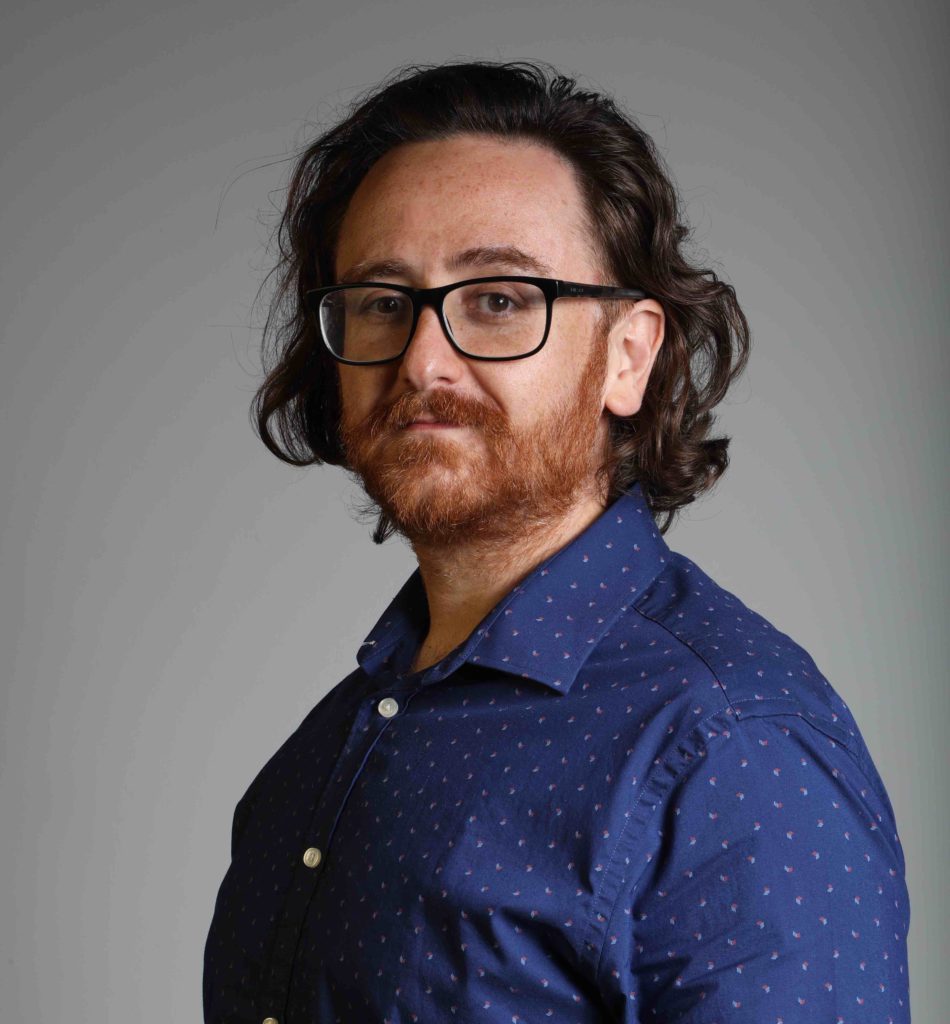Premiering in Latin America and Europe on Friday, Nov. 22, Sutura is a medical crime drama created by writer and York professor, Fabio Montanari. Excalibur reached out to Professor Montanari to discuss the project and learn more about the award-winning screenwriter.
Montanari, who hails from Brazil, wrote the first draft of Sutura (or Suture) more than 10 years ago, and pitched the idea to executives in Los Angeles after winning a screenwriting competition. The show was eventually sold and backed by Amazon Prime Video years later, through an international co-production involving companies from both the U.S. and Brazil.
“I had to learn that when you create a project for television/streamers, time is a very relative matter,” Montanari explains. “Things may take forever and you think that it may never be produced, until suddenly it gets approved and you have to rush to get it made.”
Montanari’s career began early, before finishing his undergraduate degree. He wrote a mixture of non-fiction and fiction for the TV channel FizTV/MTV Brazil, where he gained invaluable hands-on experience. But everything changed when he was awarded a Fulbright/CAPES scholarship to pursue an MFA at Columbia University.

“That opportunity truly changed the game for me. Soon after, I was hired to write for a Netflix show, and one project quickly led to another.”
While originally intending to specialize in comedy writing, Montanari soon took an interest in dramas and thrillers. However, his motivation for writing a show like Sutura is not rooted solely in entertainment.
“For me it was very important to portray how medicine can be extremely elitist, especially in places where healthcare is privatized. So, in this elitist environment, how can someone who comes from an underprivileged background break in?” Montanari explains.
He further elaborates on his desire to combine two prevalent TV genres — crime and medical dramas — into his writing: “In this series, I did my best to show how crime is not something that happens only within low-class communities, but in a world where surgeons and hospital administrators can make the same salary as a high-performance athlete.”
Montanari’s passion for such stories certainly inspired Sutura, which fuses the two styles together with powerfully effective “high-adrenaline moments.”
The series follows Ícaro, a dedicated medical student who is denied a spot in his residency program because of his college debts, and Dr. Mancini, a gifted surgeon struggling with hand tremors who is desperate to return to surgery. With few options left, the two are forced to work for a criminal organization, leading them into a dangerous web of double lives from which they may never escape.
On Life as a Writer
Like most artists, Montanari has experienced his share of difficulties along the path to success. He acknowledges the solitary existence of a writer, and how the lifestyle can take a toll on personal connections.
When asked how he manages his career as a filmmaker and his work as a professor, he confesses that “it is incredibly inspiring to be around students, as they always bring fresh perspectives to the projects I’m working on. One role truly feeds into the other.
“What I love most about universities — and York specifically — is the environment it fosters: a space filled with highly skilled and curious individuals where ideas can be shared, challenged, and refined.”
Having an expansive international career, including writing for major platforms like Netflix, Amazon Prime, and HBO, Montanari is an unquestionable font of wisdom for students and professionals looking for advice on how to navigate the entertainment industry, both in Canada and abroad. Alongside perseverance, Montanari encourages other writers to remain connected to the outside world.
“As writers, we often retreat into quiet corners to immerse ourselves in the process of writing. While that’s essential, it’s only part of the journey. We need to stay aware of what’s happening in the world to create stories that feel relevant and resonate with audiences. Writing is, at its core, a political act — it reflects and influences the way people see the world.”
Montanari challenges storytellers to push boundaries, and seek out information from people who think and live differently than themselves.
“Storytelling has the unique power to connect us, to bridge divides, and to challenge perspectives,” he states. “It’s only through this effort that we can hope to make a meaningful impact.”
Current and Upcoming Projects
Along with writing and teaching, Montanari is currently working on a research project through the collaborative program Connected Minds. Working closely with Dr. Salimur Choudhury from the Computer Sciences department at Queen’s University, Montanari is “investigating various AI models and how they respond to the creation of screenplay elements under different circumstances.”
While AI systems, like ChatGPT, are currently the subject of much debate, Montanari explains how their use can benefit the writing process, particularly in regards to organizing research.
“To streamline my research, I trained an AI model with texts from the relevant time period,” Montanari elaborates. “This allows me to quickly access information without having to sift through countless books every time I have a question. It’s just one small example of how AI has become an integral part of my daily routine as a writer.”
The writing doesn’t stop with Sutura. After the premiere, Montanari will continue his work on a new historical drama for another major streaming platform. He also has a feature fiction film based on real-life events in the works — one we hope to cover when it premieres on the big screen.
While the Canadian premiere of Sutura is yet to be announced, you can stay up to date on the show and Montanari’s work by following @suturaserie and @fabiomontanari on Instagram.

